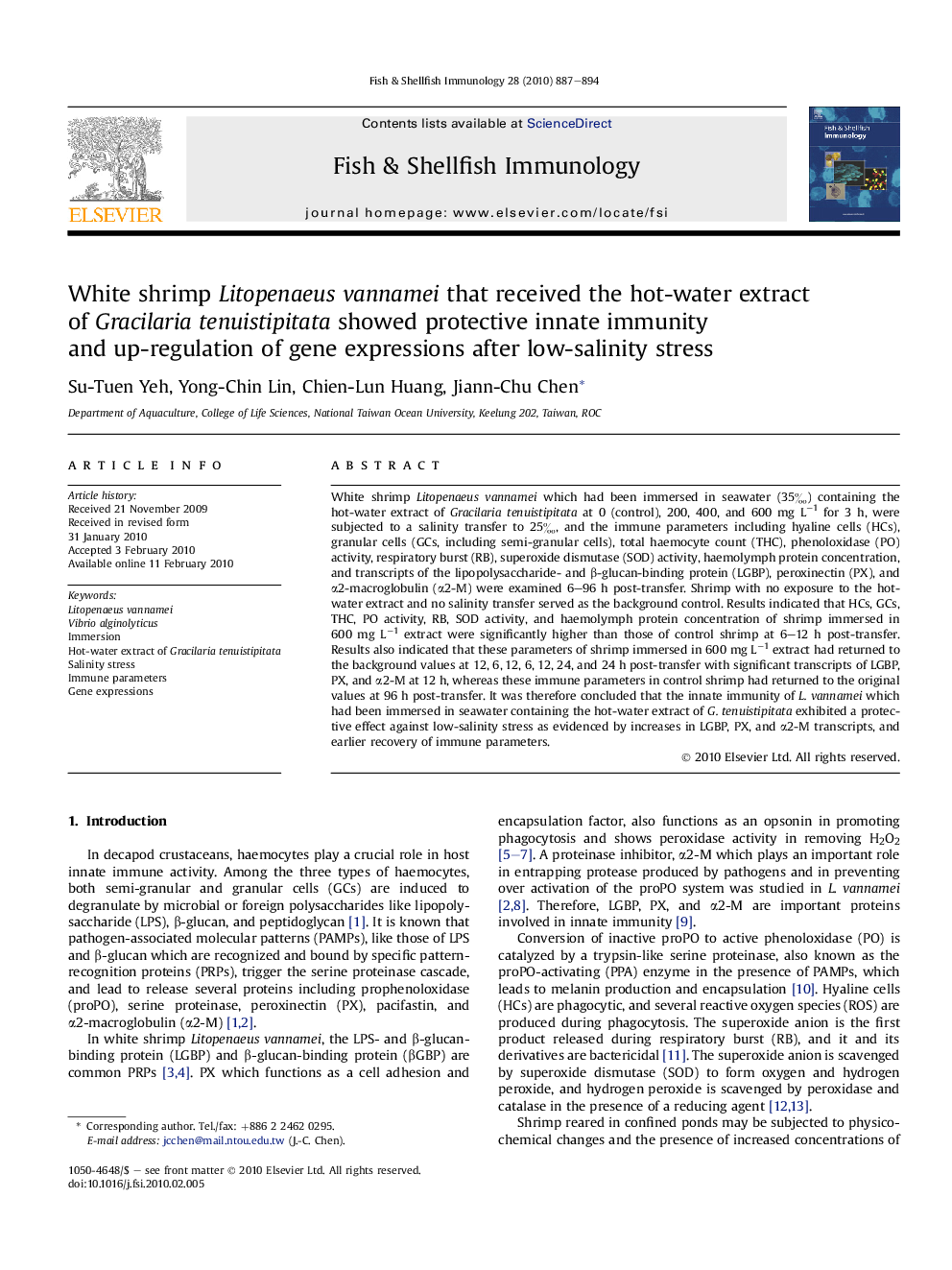| Article ID | Journal | Published Year | Pages | File Type |
|---|---|---|---|---|
| 2432684 | Fish & Shellfish Immunology | 2010 | 8 Pages |
White shrimp Litopenaeus vannamei which had been immersed in seawater (35‰) containing the hot-water extract of Gracilaria tenuistipitata at 0 (control), 200, 400, and 600 mg L−1 for 3 h, were subjected to a salinity transfer to 25‰, and the immune parameters including hyaline cells (HCs), granular cells (GCs, including semi-granular cells), total haemocyte count (THC), phenoloxidase (PO) activity, respiratory burst (RB), superoxide dismutase (SOD) activity, haemolymph protein concentration, and transcripts of the lipopolysaccharide- and β-glucan-binding protein (LGBP), peroxinectin (PX), and α2-macroglobulin (α2-M) were examined 6–96 h post-transfer. Shrimp with no exposure to the hot-water extract and no salinity transfer served as the background control. Results indicated that HCs, GCs, THC, PO activity, RB, SOD activity, and haemolymph protein concentration of shrimp immersed in 600 mg L−1 extract were significantly higher than those of control shrimp at 6–12 h post-transfer. Results also indicated that these parameters of shrimp immersed in 600 mg L−1 extract had returned to the background values at 12, 6, 12, 6, 12, 24, and 24 h post-transfer with significant transcripts of LGBP, PX, and α2-M at 12 h, whereas these immune parameters in control shrimp had returned to the original values at 96 h post-transfer. It was therefore concluded that the innate immunity of L. vannamei which had been immersed in seawater containing the hot-water extract of G. tenuistipitata exhibited a protective effect against low-salinity stress as evidenced by increases in LGBP, PX, and α2-M transcripts, and earlier recovery of immune parameters.
